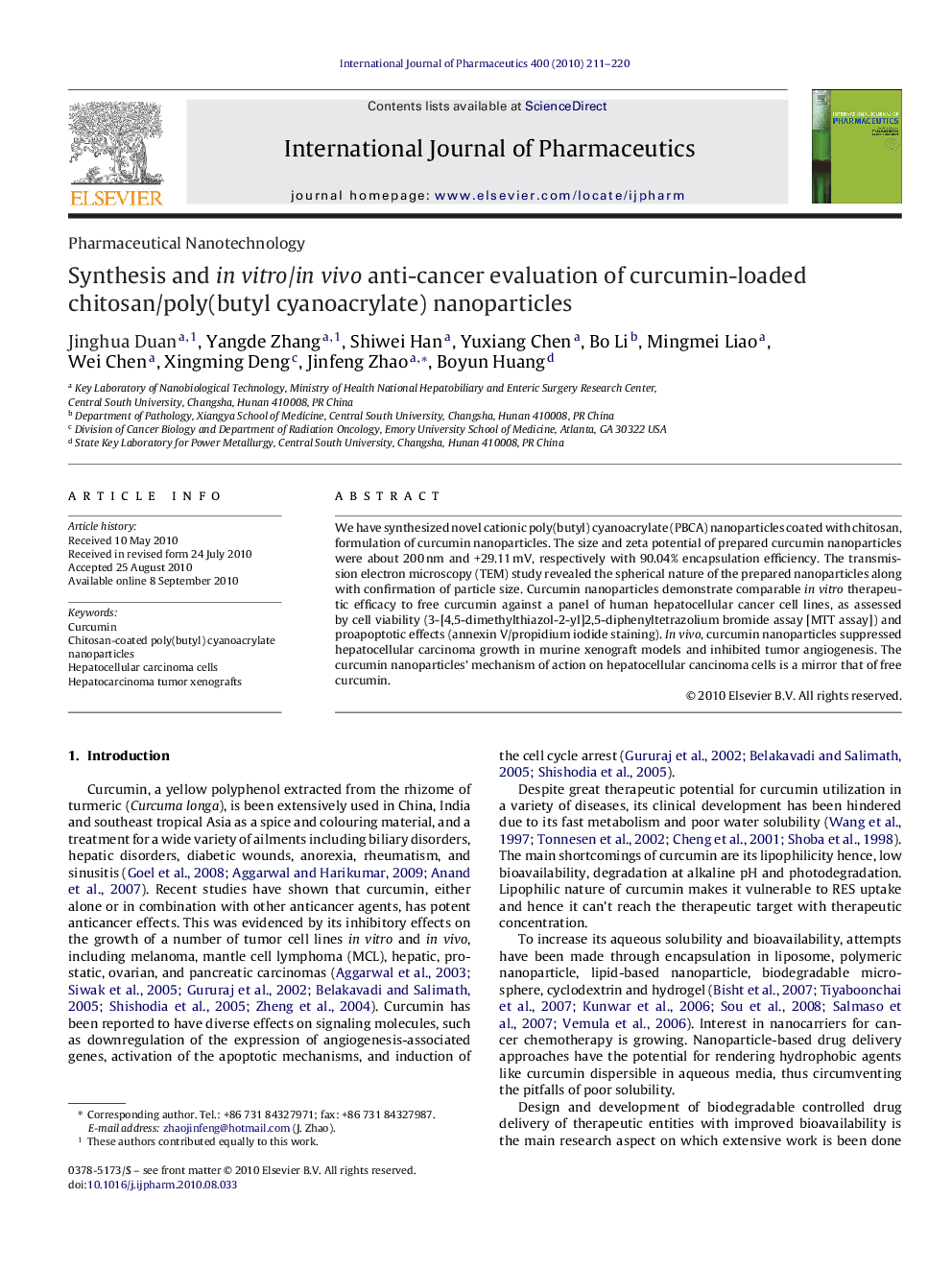| Article ID | Journal | Published Year | Pages | File Type |
|---|---|---|---|---|
| 2503805 | International Journal of Pharmaceutics | 2010 | 10 Pages |
We have synthesized novel cationic poly(butyl) cyanoacrylate (PBCA) nanoparticles coated with chitosan, formulation of curcumin nanoparticles. The size and zeta potential of prepared curcumin nanoparticles were about 200 nm and +29.11 mV, respectively with 90.04% encapsulation efficiency. The transmission electron microscopy (TEM) study revealed the spherical nature of the prepared nanoparticles along with confirmation of particle size. Curcumin nanoparticles demonstrate comparable in vitro therapeutic efficacy to free curcumin against a panel of human hepatocellular cancer cell lines, as assessed by cell viability (3-[4,5-dimethylthiazol-2-yl]2,5-diphenyltetrazolium bromide assay [MTT assay]) and proapoptotic effects (annexin V/propidium iodide staining). In vivo, curcumin nanoparticles suppressed hepatocellular carcinoma growth in murine xenograft models and inhibited tumor angiogenesis. The curcumin nanoparticles’ mechanism of action on hepatocellular cancinoma cells is a mirror that of free curcumin.
Graphical abstractA novel cationic curcumin-chitosan PBCA nanoparticle synthesized by emulsion polymerization simply, can not only improve the bioavailability of hydrophobic drug curcumin, but also suppress hepatocellular carcinoma growth and inhibit tumor angiogenesis efficiently in vitro and in vivo.Figure optionsDownload full-size imageDownload as PowerPoint slide
